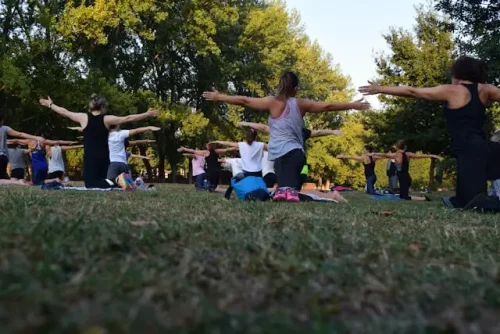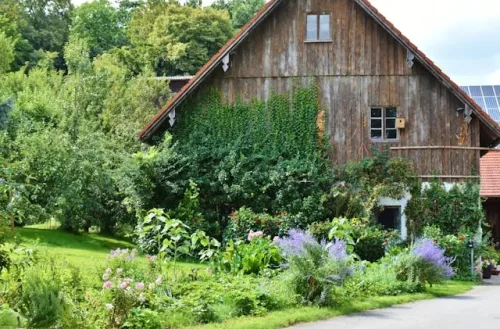
Hobbies for Relaxation: Exploring Leisure Pursuits for a Balanced Lifestyle
In the hustle and bustle of modern life, moments of stillness can feel rare. Our calendars are full, our devices always alert, and our minds often pulled in multiple directions. But finding balance is essential, not just for mental clarity, but for physical and emotional well-being. One powerful way to achieve that balance? Hobbies for relaxation.
Leisure pursuits give us a much-needed pause from the fast-paced world and reconnect us with ourselves. Whether it’s nurturing plants, experimenting in the kitchen, learning an instrument, or wandering along a nature trail, these hobbies create space for joy and rejuvenation. Let’s explore some calming, creative, and meaningful ways to unwind.
Why Relaxing Hobbies Matter
In today’s high-stress environment, our nervous systems are frequently in “fight or flight” mode. Over time, this chronic stress can lead to sleep issues, burnout, anxiety, and even physical health problems. Leisure activities can help counteract that stress by activating the parasympathetic nervous system, often called the “rest and digest” mode.
Research shows that engaging in hobbies regularly is linked to improved mood, reduced cortisol levels, better focus, and even increased longevity. Hobbies also create opportunities for mindfulness, community, and self-expression, important pieces of the wellness puzzle.
Finding Harmony in Musical Escapes
Few things soothe the soul like the sound of music. Learning to play a musical instrument, whether it’s a gentle ukulele, a soulful piano, or a vibrant violin, can be a deeply therapeutic escape. Music engages the brain in unique ways, blending discipline and creativity, focus and flow.
While picking up an instrument can feel intimidating, it’s never too late to start. Local music groups, online classes, and community workshops make learning accessible.

Creative Escapes and Artistic Expression
Engaging in artistic hobbies for relaxation, painting, drawing, sculpting, photography, or crafting, activates the brain in deeply satisfying ways. Creative pursuits provide an outlet for emotion and help shift our focus from problems to possibilities. You don’t need to be a professional artist to enjoy the benefits. The process itself matters more than the product. Even coloring books for adults or simple DIY projects can offer moments of calm. Making time for creativity can improve problem-solving skills, enhance patience, and reignite curiosity.
If you create physical art, consider how best to preserve and protect your work. Preparing art pieces for storage, such as using acid-free paper, padded containers, or climate-controlled environments, helps maintain their condition over time. Whether you’re saving your art for future display or simply want to keep it safe, mindful storage ensures your creativity is preserved for years to come.
Green Thumb Therapy
Tending to a garden is more than a weekend hobby, it’s a form of therapy. Whether you’re working with a backyard, a windowsill, or a community plot, cultivating plants can boost mood, reduce anxiety, and increase feelings of accomplishment.
To make your garden more rewarding and manageable, consider focusing on native or low-maintenance plants suited to your climate. These tend to thrive with minimal intervention and support local wildlife like birds and pollinators. A mix of flowers, herbs, and vegetables adds beauty and utility while encouraging seasonal rhythm and presence.

Embracing Yoga and Meditation
Yoga has long been celebrated as a practice that harmonizes mind, body, and breath. Whether practiced at home or in a group class, yoga encourages mindfulness, improves flexibility, and relieves tension stored in the body.
Styles vary from gentle, restorative movements to more active flows. Breathing exercises (pranayama) and guided meditation sessions can be incorporated for an added layer of calm. If you’re looking to deepen your connection, consider joining a wellness retreat or workshop for a full immersion. Many find that yoga becomes not just a hobby but a way of life, fostering long-term resilience and self-awareness.

Cooking and Baking for Joy
There’s something grounding about the rhythm of preparing a meal, the chopping, stirring, tasting, and plating. Cooking and baking can be meditative, especially when done with intention rather than urgency.
For some, this hobby includes trying new recipes or perfecting old family dishes. For others, it means experimenting with different ingredients or techniques. No matter the approach, the act of nourishing yourself (and others) offers comfort, creativity, and connection. Bonus: many find that time in the kitchen helps them slow down and become more present.
Pairing culinary hobbies with wine- or tea-tasting, spice blending, or hosting small gatherings can turn routine moments into enriching experiences. And for those looking to improve health, cooking at home is one of the best ways to support mindful eating habits.
Connecting with Nature
Spending time outdoors has been linked to reduced stress, better mood, and improved immune function. Activities like hiking, cycling, birdwatching, or simply walking in nature offer a welcome break from screens and traffic noise.
You don’t need to summit a mountain to enjoy the benefits. Even a quiet stroll along a wooded path or sitting by a body of water can help you reset. If you enjoy journaling or sketching, bring along a notebook to capture your thoughts or the beauty around you. Let nature be your therapist and your muse.
Read More: How to Reduce Stress in Each Aspect of Your Life
Finding Belonging Through Shared Interests
While some hobbies are solo endeavors, others thrive in community. Participating in a book club, taking a dance class, attending workshops, or joining a local interest group can provide social connection, a key component of well-being.
Attending local performances, festivals, or museum exhibits can also serve as a form of relaxed entertainment and cultural enrichment. Engaging with different perspectives and creative expressions helps us expand our understanding and find joy in shared experiences.
Final Thoughts: Making Room for What Matters
Relaxation isn’t laziness, it’s essential. Creating space for hobbies is one of the most powerful ways to improve your quality of life. It’s not about filling every spare minute, but about choosing moments that matter. Whether you’re strumming a guitar, digging your hands into garden soil, breathing deeply in a yoga pose, or savoring a home-cooked meal, these small acts have a big impact.
You don’t need to change your life overnight to begin. Start with 10 minutes a day doing something just for you. Over time, those moments add up to more energy, more clarity, and more joy. So take a deep breath, slow down, and explore some hobbies for relaxation. Life may not always be calm, but your inner world can be.

